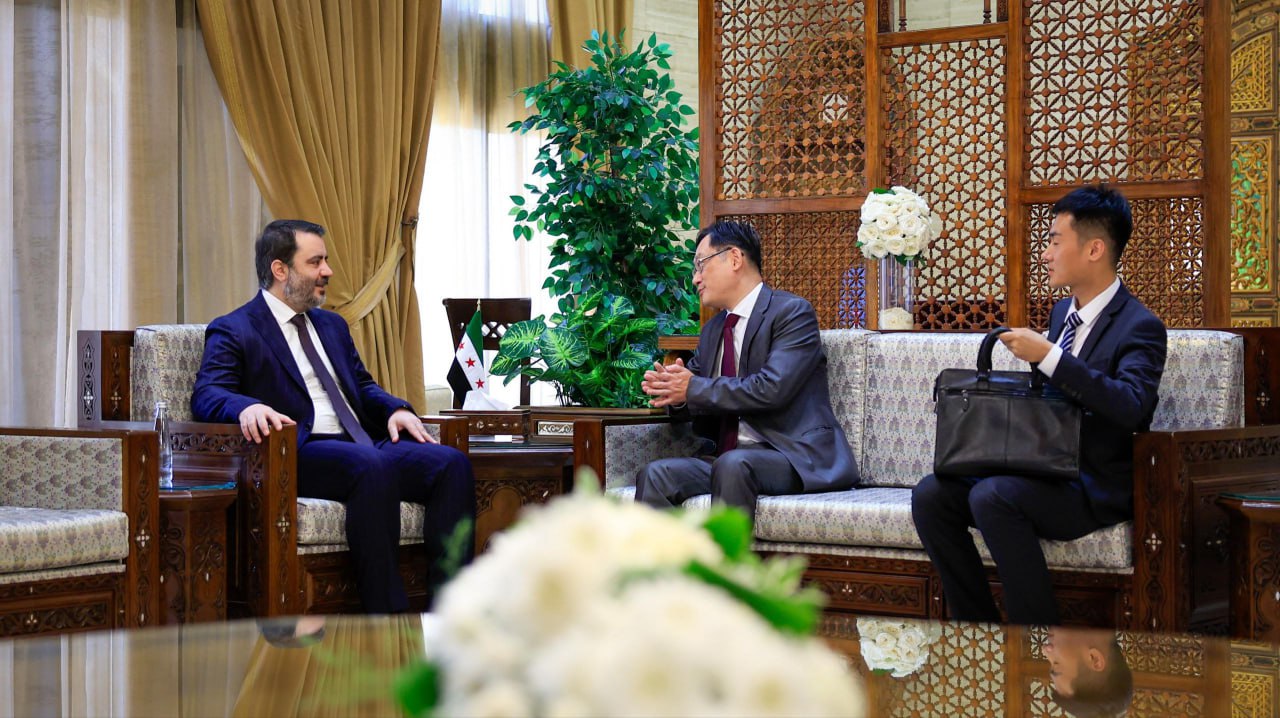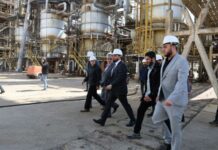
Syria’s post-Assad government is taking visible steps to build a stronger relationship with China, as officials in Damascus aim to secure international backing for reconstruction and economic revitalization. Early this year, Foreign Minister Asaad al-Shaibani met with China’s ambassador to the UN, Fu Cong, in New York, stating Syria’s intent to develop a “long-term strategic partnership” with Beijing, according to a statement from the Foreign Ministry.
Sunday, June 27, Chinese Ambassador Shi Hongwei and Shaibani met in Damascus to boost cooperation. Highlighting China’s interest in Syria’s reconstruction and trade and broader regional integration efforts. Earlier this year, Syrian officials signed a major investment agreement with the Chinese company Fidi Contracting.
The memorandum of understanding grants Fidi access to more than one million square meters of land in Syria’s free trade zones—850,000 square meters in Homs and 300,000 in the Damascus countryside—to build industrial and service complexes over a 20-year period. Damascus says the deal is designed to attract foreign investment and strengthen economic development.
History of Cautious Cooperation
China’s engagement with Syria is shaped by years of opaque, intermediated economic ties, especially during the period of US and European sanctions against the Assad regime. Even with limited official trade—China reported $357 million in exports to Syria in 2023—Chinese goods flooded Syrian markets through third-party countries like the UAE and Iraq.
That dynamic has continued following Assad’s fall. According a Damascus-based CEO, Chinese commercial actors quickly adapted to the transition, continuing operations despite diplomatic uncertainty.
Security Concerns Shape China’s Position
While Damascus seeks deeper cooperation, Beijing has so far responded with caution. Chinese officials, including Foreign Minister Wang Yi, have expressed support for a Syrian-led political process and stressed the importance of stability, sovereignty and resistance to terrorism. One area of concern for Beijing remains the presence of foreign fighters in Syria, especially Uyghur volunteers, who fought alongside the coalition that brought down the Assad regime.
Analysts such as Lu Xiaoyu of Peking University suggest that China’s engagement may depend on the Syrian government’s handling of this issue. Beijing has drawn similar lines in other conflict zones, conditioning economic cooperation on efforts to neutralize groups it views as a threat.
Reconstruction Efforts Lead Policy
Despite these hurdles, the Syrian government appears determined to build on China’s historical economic footprint. The deep networks of informal trade built during the years of sanctions could serve as a foundation for expanded investment, particularly in reconstruction, infrastructure and manufacturing.
Whether Beijing moves beyond cautious diplomacy to embrace Syria as a strategic partner may depend on how Damascus navigates the security landscape and balances competing demands from international players. For now, economic ties continue to grow, with or without formal endorsement.








